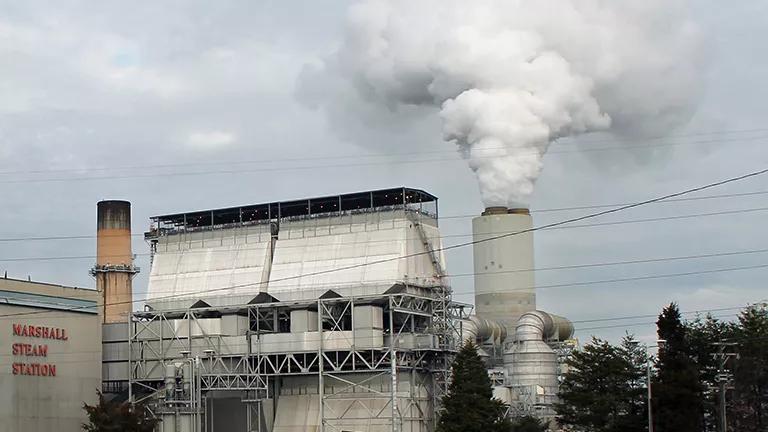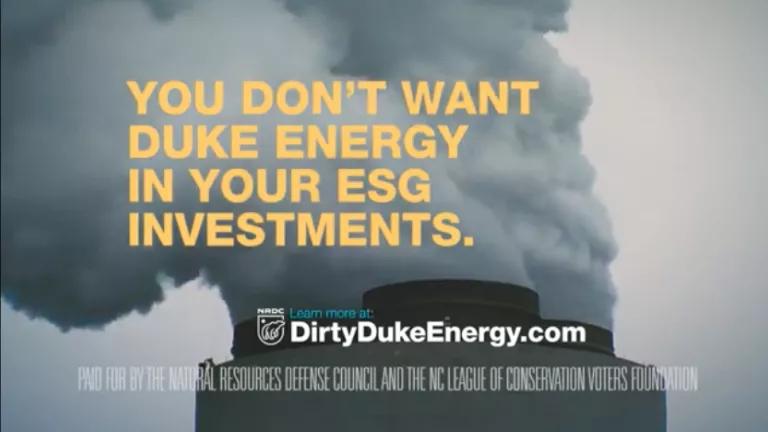Duke’s Pipedreams Are Giving North Carolina Gas
HB 951 is a giveaway to Duke Energy and natural gas.
On June 15th, Pro-Duke Energy legislators and stakeholders released their secret bill developed without input from environmental or ratepayer advocate stakeholders, Democratic legislators, or Gov. Cooper’s office, unlike the extensive process used to develop Gov. Cooper’s Clean Energy Plan. While there are some good policy pieces in the massive bill, it will make North Carolina more dependent on natural gas, pushing us further away from our clean energy goals. Worst of all, it would take oversight away from our energy regulators and help advance the now-stalled MVP-Southgate pipeline.
Despite Gov. Cooper’s clear warning that he will veto any energy bill unless it significantly reduces carbon emissions and meets clean energy goals (there are no goals in this bill), Duke and the North Carolina legislature are marching forward with a bill that does neither. It’s concerning that this bill allows Duke Energy to bake its inadequate 15-year energy plan into law and continue building natural gas plants instead of investing in solar, wind, and battery storage. It would put ratepayers on the hook for unneeded coal and fracked gas infrastructure now that renewables have become the cheapest options, and it would delay actions we need to ensure North Carolina remains a clean energy leader.
One example that highlights one of the many problems of the bill is how it proposes to retire a Duke Energy coal plant in Roxboro, only to try and replace it with another massive fossil fuel plant. Currently, the plant emits as much sulfur dioxide as much larger plants and the surrounding communities have a higher energy burden than the national average, and many of its residents are African American. Retirement of the Roxboro coal plant “would depend on natural gas availability under the bill. That would likely come from the Mountain Valley Pipeline Southgate extension.”1 According to the bill summary, without the pipeline, Roxboro would continue to operate as a coal-fired plant, one of the filthiest air polluters. This is just one example demonstrating the false dichotomies and half-measures in the bill and how it would continue to bind North Carolina ratepayers to fossil fuels.
Duke Energy engaged a very narrow group of stakeholders in writing this bill, leaving the majority of legislators, executive branch staff, impacted communities, and other advocates without a voice. They did this to circumvent the IRP energy plan approval process, running to a friendly legislature to get their expensive fossil plans approved. This legislation would make it impossible to reach North Carolina’s climate goals, and would continue to put the health of its residents at risk. That’s why we oppose this legislation in its current form—on both substantive and process grounds. Not only that—the Legislature is now trying to ram this bill without getting making room for discussion or debate.
North Carolina can continue being a leader in clean energy, growing jobs, and cutting harmful emissions in the process, but not without Duke Energy’s commitment to those goals. Right now, Duke is trying to have it both ways. On the one hand, they are helping places like Charlotte bring clean energy projects online, but across the state, Duke is also planning a massive buildout of gas power plants that would make it impossible to meet our 2030 and 2050 goals. That’s the opposite of progress. It would lock in decades of climate pollution and force ratepayers to pay for fossil generation they don’t need. This bill will hurt our economy and our health.
1. The Cooper administration has rightfully denied permits for this extension due to water quality issues. So far, the Mountain Valley Pipeline has agreed to pay over $2 million in penalties due to the more than 300 water quality violations alleged by both Virginia and West Virginia.






